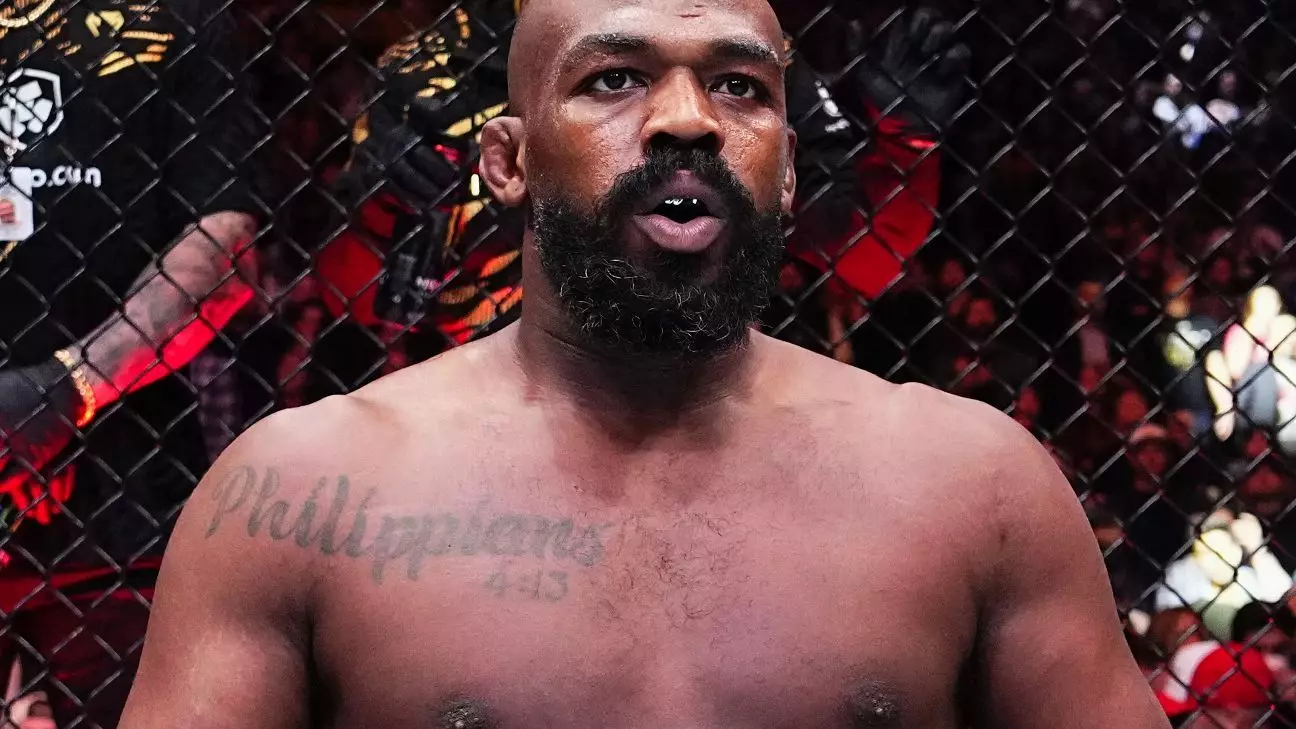Jon Jones, a name synonymous with greatness in mixed martial arts, has stepped away from the sport, a decision that reverberates deeply within the UFC community. Dana White, the UFC’s CEO, made the announcement during a recent press conference, revealing that Jones informed the organization of his retirement. The abrupt nature of this announcement raises numerous questions about the implications for the heavyweight division and, most importantly, the legacy of one of the sport’s finest athletes.
At 37, Jones’s retirement signifies both a culmination of an illustrious career and leaves a void in the heavyweight division that fans were eager to see filled in a tense matchup against interim champion Tom Aspinall. This potential clash, one that promised fireworks and a historic title unification, now remains a missed opportunity that could have defined the latter part of Jones’s career. Instead, it elevates Aspinall to undisputed champion—an outcome more tantalizing than the fight itself, challenging both competitors and fight fans on how to process this transition.
The Legacy of Jon Jones
Jones’s legacy is remarkable, shaping the discussions around what it means to be a champion in the UFC. He first leapt into the limelight at the age of 21, claiming the title of the youngest champion in UFC history, a record that has endured through the years. His dominance in the octagon is underscored by a staggering 16-0 record in championship fights, the most in the organization’s storied history. As a fighter who has actually competed in multiple weight classes—successfully conquering both light heavyweight and heavyweight divisions—Jones stands as one of the rare athletes to transcend the limitations often imposed by weight categories.
However, his journey has not been without its controversies. Legal troubles, including a felony hit-and-run charge and a suspension for performance-enhancing drug use, frequently cast shadows over his in-ring accomplishments. While Jones has maintained his innocence, attributing his failed tests to contaminated supplements, these incidents mar an otherwise stellar sports career. For many observers, they serve as a testament to the dualities of greatness—remarkable skill coupled with personal failings.
The Fallout and Aspinall’s Rise
With Jones stepping away, Tom Aspinall’s ascension to the heavyweight throne comes with its own set of narratives. The anticipation of a bout that could have validated both Jones’s legacy and Aspinall’s emerging dominion is now replaced by speculation and what-ifs. UFC president Dana White acknowledged the unexpectedness of Jones’s decision and the implications it bears on Aspinall. The champion’s demeanor during this whirlwind has been commendable; his eagerness to step into the spotlight and challenge anyone reflects the resilience that defines a true champion.
White’s confidence in Aspinall indicates that the UFC is gearing up for exciting prospects in a heavyweight division bereft of its star player. Aspinall’s willingness to accept fights whenever and wherever demonstrates both his professionalism and his commitment to growing the sport. It raises crucial questions about the future of heavyweight MMA—will Aspinall’s reign invigorate a division that yearned for a fresh face?
Looking Ahead: The Future of UFC Heavyweight Division
As the dust settles from Jones’s retirement, the heavyweight landscape is ripe for evolution. The division, long dominated by personalities like Jones, now faces a critical juncture. With fresh champions come new contenders—athletes hungry to carve their names into the annals of UFC history. It becomes essential for the UFC to cultivate narratives that engage fans and create rivalries that can revive interest in heavyweight bouts.
The road ahead now rests on the shoulders of fighters like Aspinall, who must inspire confidence and deliver excitement within a division desperate for direction. The UFC must also take this opportunity to highlight aspirants who can rise to the occasion, craft compelling matchups, and bring the heavyweight division back into the limelight. A new era has begun, and with it comes the responsibility of not only carrying a title but also rekindling the spirit of competition that fans have long cherished.
In the end, Jon Jones may have left the Octagon, but the legacy he created will fuel discussions and inspire future champions for years to come.

